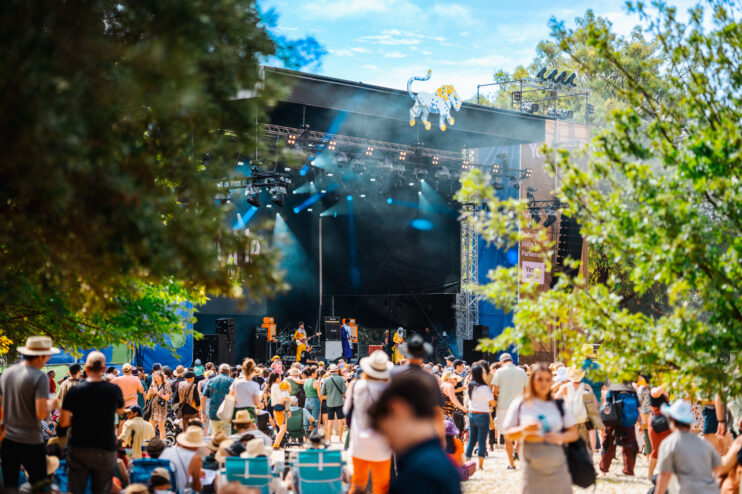Your cart is empty.


Your cart is empty.
Impact

Festivals require stages and power to deliver arts and music events and engage with their audiences. Where grid connection due to lack of proximity or power demand is not feasible, it is common practice to use on-site generators powered by diesel liquid fuel. However, diesel is a fossil fuel that emits greenhouse gases (GHG) and contributes to global warming – whether used to fuel a generator or some form of transport.
Potential solution/s
Festivals are piloting initiatives to reduce their reliance on fossil fuels, mitigate their carbon footprint and reduce their environmental impact. WOMADelaide, for example, has explored ways to reduce its greenhouse gas emissions from power generation for the Frome Park Pavilion stage in Adelaide Botanic Garden.
This resulted in a switch from a diesel to a biodiesel-fuelled generator because the combustion of biodiesel results in substantially lower GHG emissions. That is, diesel combustion emits 70.2 kg CO2-e per gigajoule (GJ) whereas biodiesel emits 0.28 kg CO2-e per GJ. The fuel energy content factor of both fuels is similar being 38.6 GJ/kilolitre (KL) for diesel and 34.6 GJ/kL.
Implementation
In 2022, WOMAD partnered with Green Power Solutions to introduce B100, a 100% biodiesel made from vegetable oils and waste fats. This was designed as a proof-of-concept model for other outdoor events in Adelaide, to reduce fossil fuel use and cut down emissions.
However, the widespread adoption of biodiesel faces a couple of hurdles. Firstly, the availability of biodiesel-fuelled generators for hire, especially during the peak festival season in March. Secondly, there is the cost associated with the purchase and shipping of biodiesel fuel to the site. Despite these obstacles, the data gathered from powering the Frome Park Pavilion stage using biodiesel in 2022 provides valuable insights into the viability and impact of this solution.
The outcome
The greenhouse gas emissions (GHG) associated with powering the Frome Park Pavilion stage using biodiesel in 2022 were negligible compared to the previous years’ use of diesel fuel.
In 2020, a total of 637 litres of diesel fuel was used, at a cost of $2.30 per litre, and resulted in the calculated emission of 1.73 tonnes of greenhouse gases. In contrast, in 2022 the usage of biodiesel increased to 2000 litres due to changes in staging setup and power requirements, with a higher cost of $2.83 per litre. However, the GHG emissions were calculated to be much lower at 0.02 tonnes.
While fuel consumption increased in 2022, the much lower GHG emissions demonstrate the potential for reducing the carbon footprint from festival stages. Moreover, this pilot highlights the need to consider not only the costs, but also the emissions and sustainability goals when assessing the feasibility of biodiesel as a viable alternative to diesel fuel.
Next steps
The next steps for WOMADelaide involve collaborating with Aggreko or a national company to obtain generators that are compatible with biodiesel fuel. WOMADelaide has already identified a suitable fuel supplier and is now in the process of negotiating with Aggreko to secure their agreement for incorporating biodiesel/biofuels into their equipment by 2024.
These efforts aim to further advance the use of biodiesel and promote sustainable fuel options in powering festival stages and events. Furthermore, through this conscious decision, WOMADelaide can inspire other festivals to foster a sustainable energy transition.